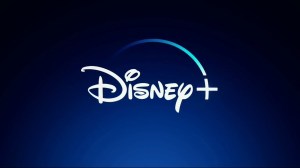Fuddruckers will soon be no more, at least in its current form. Tuesday afternoon, the board of Luby’s Inc. — the parent company behind both Luby’s and Fuddruckers — announced plans to sell the assets of both chains, a move that begins the shuttering both companies until a suitable buyer can come along and snatch up the brand.
Videos by ComicBook.com
Back in June, the company previously announced its intentions to sell its assets to any willing buyers after being “hammered” by the coronavirus pandemic, per a company statement. At the time, over half of those located in the company’s corporate office had been furloughed and any employees who remained saw drastic salary cuts.
Even prior to the onset of the pandemic, Luby’s CEO Chris Pappas expressed disappointment with the company’s Q1 returns, where the restaurant posted an $8.3 million net loss.
“We continue to focus on initiatives that we began last year,” Pappas said, adding, “including this restaurant focus on delivering a compelling, everyday value proposition to guess at both Luby’s and Fuddruckers with less discounting, but clarifying each brand’s value offerings in the marketplace, we intend to drive guest traffic and sales.”
That loss eventually led to the closure of 25 Fuddruckers and 14 Luby’s in March.
“The number of operating restaurants is subject to change as we adjust operations in response to the pandemic and governmental requirements,” the company said in a statement at the time. “At this time, neither the duration nor scope of the disruption can be predicted, therefore, the negative financial impact to our results cannot be reasonably estimated.”
Per the Fuddrucker’s site, the company currently operates over 100 locations in the United States. Nearly half of those locations are based in Texas, where the company’s corporate headquarters currently resides. It’s unclear at the moment if those locations will close immediately or will continue to operate through the liquidation.
The company was founded in 1979 by restaurateur Phil Romano. In a phone call with the Dallas Morning News, Romano said his goal at the onset of the restaurant was to make a higher-end McDonald’s, complete with alochol and all. “I said, ‘I’m going to make a bigger, better hamburger, take the [McDonald’s] clowns out, put beer in there, and make it more updated,’” Romano told the paper.
Cover photo by Jeffrey Greenberg/Universal Images Group via Getty Images








